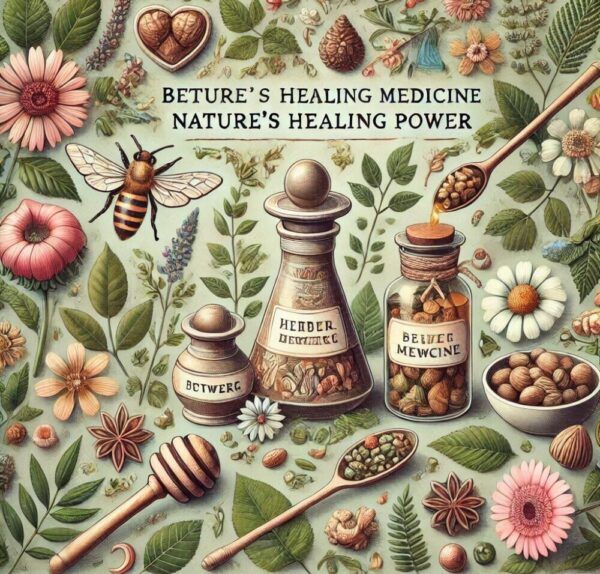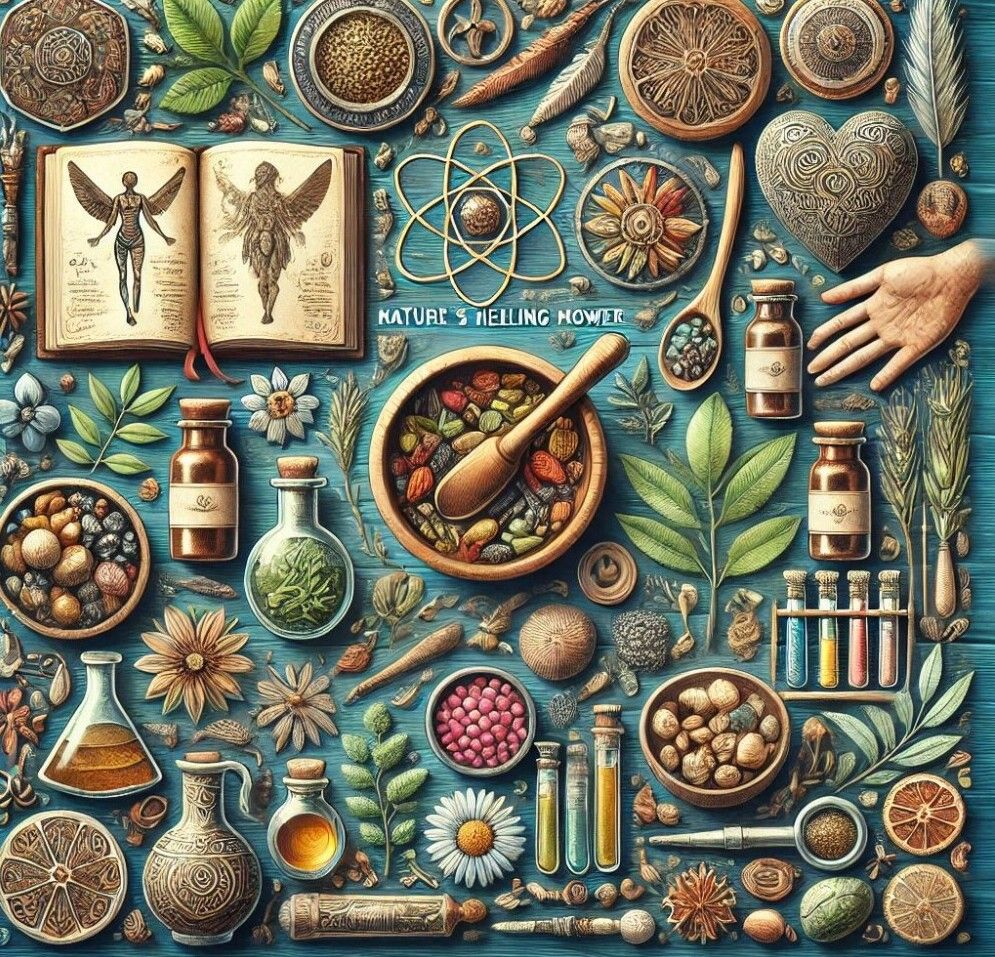
Herbal medicine has been around for ages. It’s fascinating to think about how folks from different eras and cultures have turned to plants for healing. Whether it’s ancient Egypt, China, India, or indigenous cultures around the world, herbal remedies have played a crucial role in health care long before modern medicine came into play.
What makes herbal medicine really interesting is the varied use of plants like echinacea for colds, or garlic for boosting the immune system. These remedies have stood the test of time, not just because they have some efficacy for certain conditions, but also because they’re deeply rooted in tradition.
But just because something is natural doesn’t automatically mean it’s safe. It’s important to get this part straight. Many people assume that since herbs are plant-based, they’re entirely risk-free. However, even natural products can have side effects or interact negatively with other medications. That’s why understanding the ins and outs of herbal medicine is key. It boils down to being aware and educated about what you’re using and why.
Thinking of shifting towards more natural remedies? It’s a good idea, but do it with care. Start by learning about common herbs and their effects. Many have been used traditionally for particular ailments; peppermint for digestion or chamomile for soothing anxiety. But always remember that traditions might not always line up with scientific evidence.
When considering herbal remedies, it’s wise to consult experts or healthcare providers, especially if you’re new to this or if you’re already on medication. It’s all about striking a balance between honoring traditional wisdom and taking advantage of modern scientific insights.
The Benefits of Herbal Medicine: Nature’s Healing Power

Herbal medicine offers a wide range of benefits that make it a popular choice for addressing various health concerns. Many people turn to herbs as a natural way to manage chronic conditions like anxiety, sleep disturbances, or low libido. This approach stems from the understanding that plants have unique therapeutic properties that can complement traditional medicine.
One of the main attractions of herbal medicine is its potential to support heart health. Studies suggest that herbs like garlic and linseed may help lower cholesterol levels, ultimately reducing the risk of heart disease. Others like turmeric and ginger are lauded for their anti-inflammatory properties, which are beneficial for conditions like arthritis.
On the cancer front, some herbs exhibit properties that might help prevent or control tumor growth. While research is still ongoing, herbs such as lemongrass and fenugreek are believed to have anti-tumor capabilities, offering hope alongside conventional treatment methods.
It’s not just about disease prevention. Herbs can play a role in improving overall wellness and vitality. Ingredients like peppermint have been used for centuries to aid digestion, while green tea is widely appreciated for its antioxidant qualities, contributing to general well-being.
Although herbal medicine can provide numerous advantages, it is important to approach it with a clear mind. Consulting with healthcare professionals ensures that you’re using these natural supplements effectively and safely. It’s about enhancing your health toolkit without taking unnecessary risks.
Beware the Risks: Disadvantages of Herbal Medicine
Using herbal medicine isn’t without its downsides. Even though they’re natural, herbs can cause mild to severe negative reactions. Allergic reactions such as rashes or even more serious responses can occur, highlighting the need for caution.
It’s vital to recognize that herbal supplements aren’t under stringent regulations like conventional medicines. The FDA doesn’t scrutinize them for safety and efficacy, which means there’s a potential risk when using them. This lack of oversight means that what you think is an all-natural product may include contaminants or even ingredients that are not listed on the label.
Then there’s the issue of interaction. Herbs can interfere with prescribed medications, which might reduce their effectiveness or lead to adverse effects. For example, St. John’s Wort is known to affect antidepressant drugs, diminishing their benefits.
Another hurdle is the lack of comprehensive scientific evidence supporting the efficacy of many herbs. While traditional uses provide anecdotal backing, scientific studies are not always available or conclusive. This leaves the effectiveness of many herbal remedies as largely uncertain.
Before jumping into the world of herbal medicine, it’s essential to do your homework and make educated choices. Always discuss potential herbal treatments with a healthcare provider, especially if you’re pregnant, nursing, or managing chronic health conditions. Being informed is your best defense against potential risks.
Evidence and Effectiveness: Are Herbs Truly a Cure?

Investigating the effectiveness of herbal medicine requires a clear-eyed view of the evidence available. While many swear by their benefits, the scientific proof for most herbal remedies is pretty limited. This doesn’t necessarily discredit their use but highlights the difference between traditional knowledge and evidence-based practice.
A lot of what we know about herbs comes from generations of practical use, passed down as part of cultural traditions. For example, Echinacea has been used historically to ward off the common cold, but scientific studies have produced mixed results. This gap between anecdotal evidence and scientific validation matters when considering herbal options.
Before considering herbs as treatments, it’s crucial to differentiate between those that have some scientific backing and others that rely mainly on tradition. Consult reputable sources and keep up with current research to understand which herbs show promise for specific conditions and which ones might be less effective or more risk-prone.
While modern research is catching up with some traditional claims, consulting health professionals who understand the nuances of herbal medicine is vital. Their expertise can provide insights into which remedies might work and how they can be safely incorporated into your health regimen.
Educating yourself is important too. Read labels, investigate potential side effects, and understand the dosages. The goal is to use herbs as a complement to conventional treatments, aiming for the best of both worlds when it comes to health.
Ancient Practices and Modern Applications: A Balanced Approach

The journey through herbal medicine doesn’t stop at understanding benefits and risks. It’s about integrating these ancient practices into our modern lives wisely. While walking this path, it’s crucial to consider both historical insights and contemporary findings.
Herbs have been perceived through various cultural lenses, including biblical references that highlight plants like fig and hyssop for their healing potential. These traditional views can inform our understanding but don’t replace the necessity for modern scientific validation.
Today, many people seek to integrate herbal supplements into their daily routines. Whether it’s starting the day with a ginger-lemon shot or winding down with a calming chamomile tea, herbs can enhance your lifestyle. But balance is key, especially since not all natural products are benign and some could have unintended consequences.
Finding harmony between traditional and modern medicine involves staying informed, being skeptical of bold claims, and ensuring you’re using quality products. This means looking for third-party certifications or consulting knowledgeable healthcare providers who understand both worlds.
Always remember, it’s about making informed choices that suit your unique needs and health goals, while appreciating the deep-rooted history of these natural remedies. This balanced approach ensures that we harness the best of what both herbal and conventional medicine have to offer.

